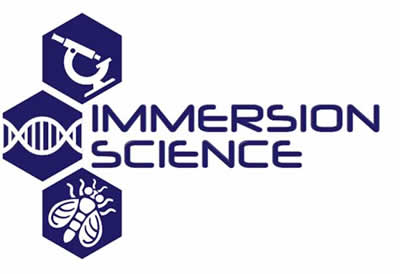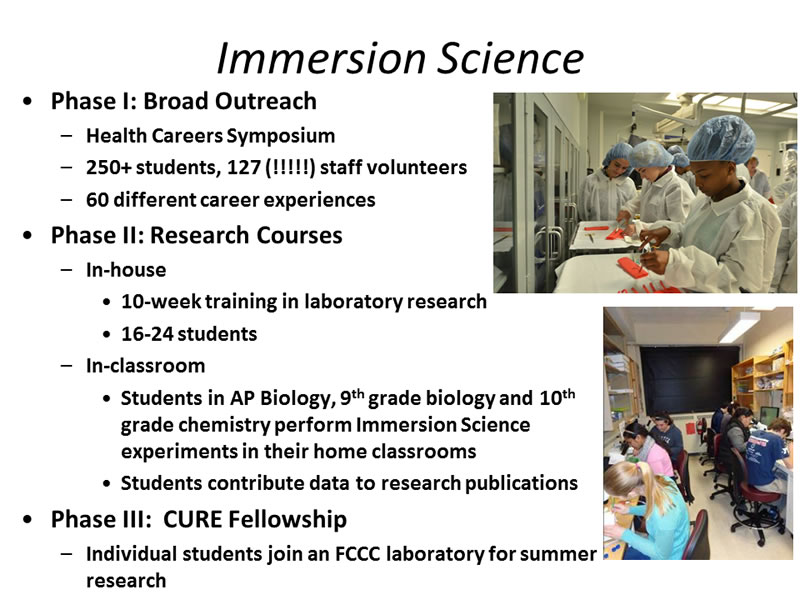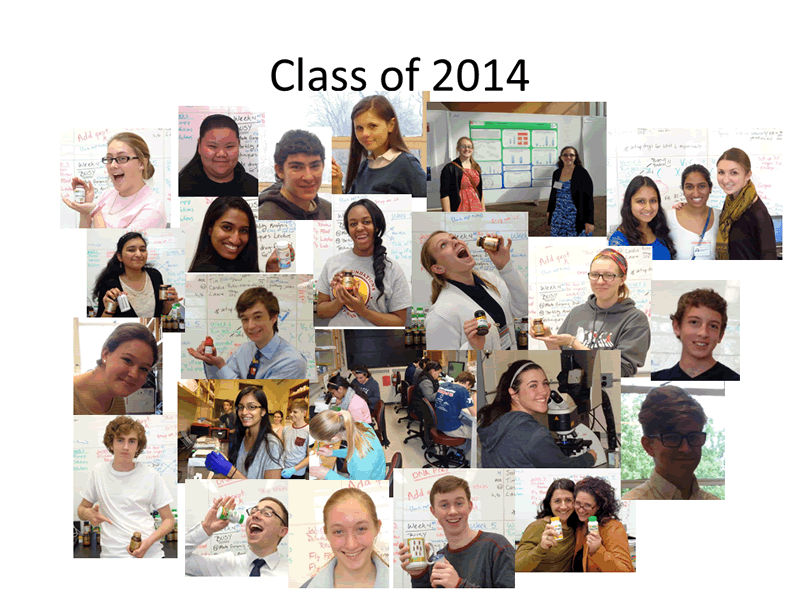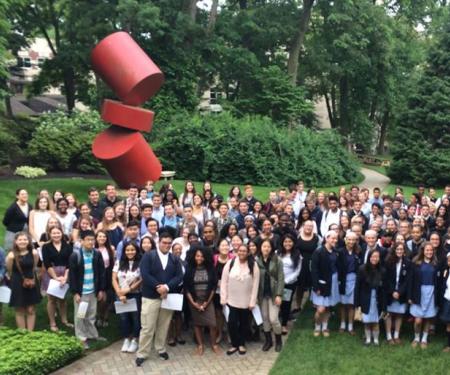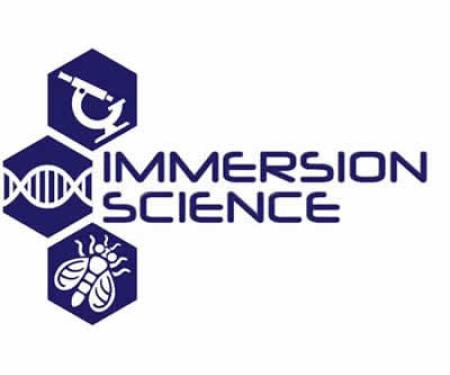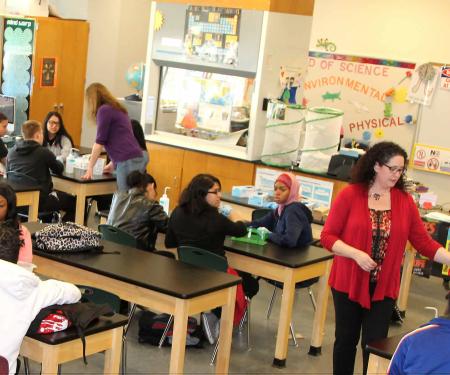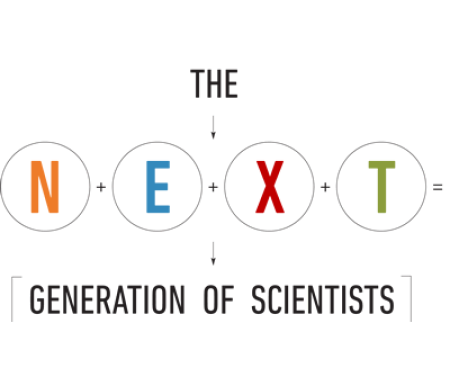ISP Research Course on FCCC campus
The Immersion Science program (ISP) aims to train high school students in cutting-edge biomedical research. Students and teachers participate in courses in the FCCC Teaching Laboratory in the Reimann Building, conducting novel research to define the cancer signals targeted by nutrients.
ISP is open to all students in the Philadelphia- Tri-State area and is committed to the School District of Philadelphia by hosting a Philly-only section each year. Applications are blind-reviewed, so really work to make yourself come to life from the pages of the open-ended questions. The ISP is not a GPA or standardized test-driven program. We are looking for participants that want to contribute academically, socially, and intellectually to the ISP Community. Students who think outside-the-box, have collaborative natures, and will go on to be ambassadors of the ISP are encouraged to apply. The ISP welcomes your talents and problem solving skills as we work together towards a better understand the pathways frequently studied in cancer and the dietary components that affect them.
See our Frequently Asked Questions for more information on eligibility, deadlines, and applications
Publications
Hartman, T.R., Ventresca, E.*, Hopkins, A.*, Zinshteyn, D.E., Singh, T., O’Brien, J.A., Neubert, B.C., Hartman, M.G., Schofield, H.K., Stavrides, K.P., Talbot, D. E., Riggs, D. J., Pritchard, C., O’Reilly, A.M. Novel tools for genetic manipulation of Follicle Stem Cells in the Drosophila ovary reveal an integrin-dependent transition from quiescence to proliferation. Genetics, 114.173617 PubMed
Henry, R.A., Singh, T, Kuo, Y.M., Biester, A., O’Keefe, A., Lee, S., Andrews, A.J., O’Reilly, A.M. Quantitative measurement of histone tail acetylation reveals stage-specific regulation and response to environmental changes during Drosophila development. Biochemistry, DOI: 10.1021/acs/biochem.5b01070.
ISP Summer Fellows MUST complete the Immersion Science Program’s Research Course for consideration in this program. Fellows conduct independent research in FCCC laboratories under the direction of faculty and postdoctoral fellows. CURE fellows are supported by a grant from the National Cancer Institute that aims to address disparities at the faculty level in biomedical science. Kahn Family fellows are supported by the generosity of the Kahn Family.
CURE Fellowship from the National Institute of Health (NIH) and National Cancer Institute (NCI)
Devon Riggs (ISP ’13, CURE ’13-14, Strochlic/Peterson, O’Reilly labs)
Benjamin Strekha (ISP ’13, CURE ’13, Rall lab)
Vignesh Murali (ISP ’13, CURE ’13-14, Yen lab)
Jane Miglo (ISP ’13, CURE ’13-14, Connolly lab)
Raj Madhani (ISP ’13, CURE ’13-14, Cukierman lab)
Danielle Talbot (ISP ’14, CURE ’14, Ruiz-Whalen/Teaching lab)
Caroline Pritchard (ISP ’14, CURE ’14-15, Kruger, Henry/Andrews labs)
Laura Leonard (ISP ’14, CURE ’14, Ruiz-Whalen/Teaching lab)
Hannah Mumber (ISP ’13, CURE ’13-14, Radu/Chernoff lab)
Sanat Deshpande (CURE ’14-15, Arora/Enders lab)
Angela Le (ISP ’15, CURE ’15, Ruiz-Whalen/Teaching lab)
Amanda Browne (ISP ’14, CURE ’15-16, Singh/O’Reilly, Arora/Golemis labs)
Shannon Robins (ISP ’14, CURE ’14-15, Yang lab)
Anushk Gupta (ISP ’16, CURE ’16, Martinez/Sykes lab)
Jasmine Saunders (ISP ’16, CURE ’16, O’Reilly, Ruiz-Whalen/Teaching labs)
Yagouba Diallo (ISP ’15, CURE ’16, Rhoades/Ma and Dunbrack labs)
Jessica Vadaketh (ISP ’14, CURE ’14-15, Sykes lab)
Allison Biester (ISP ’14, CURE ’15, Katz lab)
Tori McGovern (ISP ’15, CURE ’15, Fink/Peterson lab)
Cassie Stapf (ISP ’15, CURE ’15, Bellacosa lab)
Tess Konnovitch (ISP ’15, CURE ’15, O’Reilly lab)
Priya Zaveri (ISP’14, CURE ’15, Robinson lab)
Hang Truong (ISP ’16, CURE, ’16, Hartman lab)
Marina McCormick (ISP ’16, CURE ’16, Ruiz-Whalen/Teaching lab)
Melissa Aykit (ISP ’16, CURE ’16, O’Reilly, Ruiz-Whalen/Teaching labs)
Melissa Wang (ISP ’16, CURE ’16, Henry/Andrews lab)
Christina Tsiobikas (ISP ’16, CURE ’16, Simonet/Peterson lab)
Gabriela Cruz (ISP ’15, CURE ’16, Lee/O’Reilly lab)
Fox Chase Cancer Center Undergraduate Fellows
Adam Bolotsky (ISP ’13, O’Reilly lab)
Manali Shah (ISP ’13, Arora/Enders lab)
Yvegniya (Jane) Miglo (ISP ’13, Connolly lab)
Jessica Vadaketh (ISP ’14, Marcantonio /Sykes lab)
Choose Development! Fellowship from the Society for Developmental Biology (SDB)
Caroline Pritchard (ISP ’14, O’Reilly Lab)
Kahn Family Fellowship
Brian Milenki (ISP ’15, Radu/Chernoff lab)
Ethan Silver (ISP ’14, Katz lab)
Ben Neubert (’15, Hartman/O’Reilly lab)
Eunice Kennedy Shriver National Institute of Child Health and Human Disease
Cal McAuliffe (ISP ’13, Singh/O’Reilly lab)
The Summer Fellow program is supported by an NCI CURE grant, a supplement to the Fox Chase comprehensive cancer center P30 core grant, and by funds provided by a grateful patient fund from Fox Chase Cancer Center.TEACHER TRAINING PROGRAM (T-ISP)
In Fall 2013, we invited teachers from Philadelphia and the neighboring counties to train much in the same way our ISPers had in the previous Spring. In subsequent years, we developed additional collaborative partnerships in Philadelphia and New Jersey and we will be working with many of our T-ISPers to share core Immersion Science techniques with their students in alignment with Next Generation Science Standards (NGSS) and Core Standards.
If you are a biology-, life sciences-, or chemistry-teacher, interested in learning more about bringing “Immersion Science” into your home classrooms, please contact the ISP Team: [email protected]
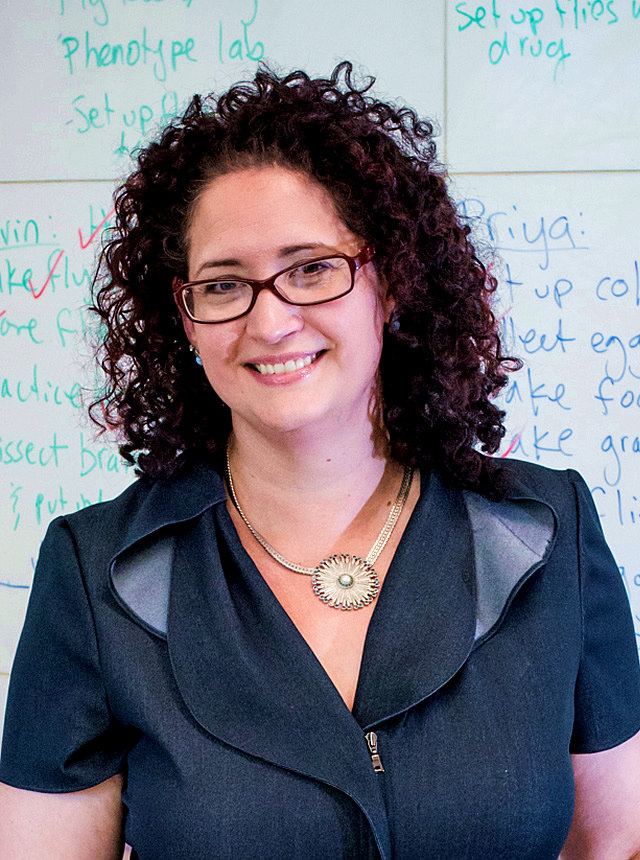
Dara M. Ruiz-Whalen, MSEd
Educational Director, Immersion Science Program
Office: R345
Teaching Lab: R340
215-728-2858
[email protected]
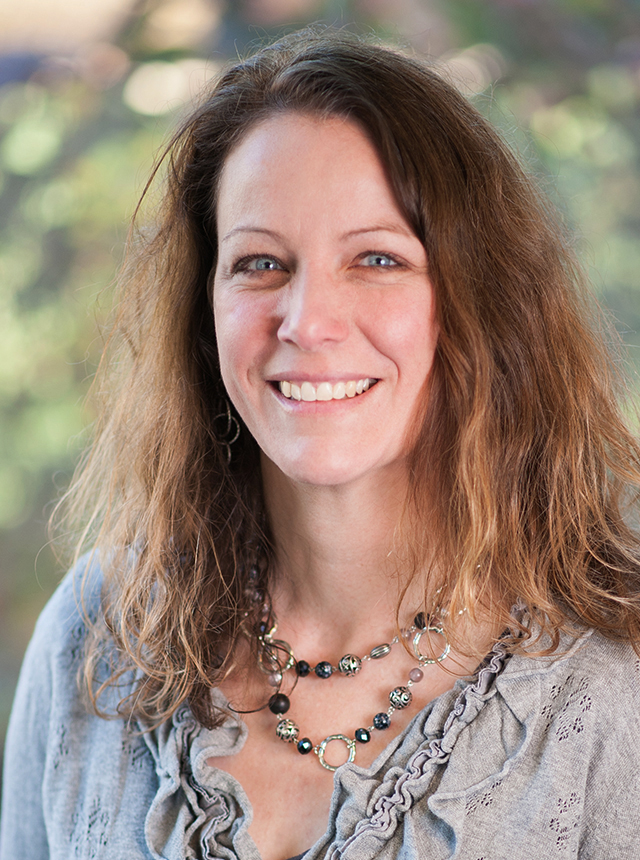
Alana O'Reilly, PhD
Scientific Director, Immersion Science Program
Office: R343
215-214-1653
[email protected]
Additional Staff
- Jennifer Alexander, PhD, Immersion Science Instructor, 2018
- Ebony Dyson, MSEd, Immersion Science Instructor, 2018
- Eric Lee, PhD, Immersion Science Instructor, 2016
- Esteban Martinez. Immersion Science Instructor, 2016
- Christopher Aichele, MSEd, Immersion Science Instructor, 2015
- Ryan Henry, PhD, Immersion Science Instructor, 2014
- Maria Radu, PhD, Immersion Science Instructor, 2014
- Ernest Boamah, PhD, Immersion Science Instructor, 2013
- Todd Strochlic, VMD, PhD, Immersion Science Instructor, 2013
Former Staff
- Devon Riggs
- Adam Bolotsky
- Cal McAuliffe
- Danielle Talbot
- Benjamin Strekha
- Sanat Deshpande
- Ethan Silver
- Yvegniya Miglo
- Manali Shah
- Raj Madhani
- Vignesh Murali
- Laura Leonard
- Hannah Mumber
For general questions about the Immersion Science program, write to us at [email protected].
